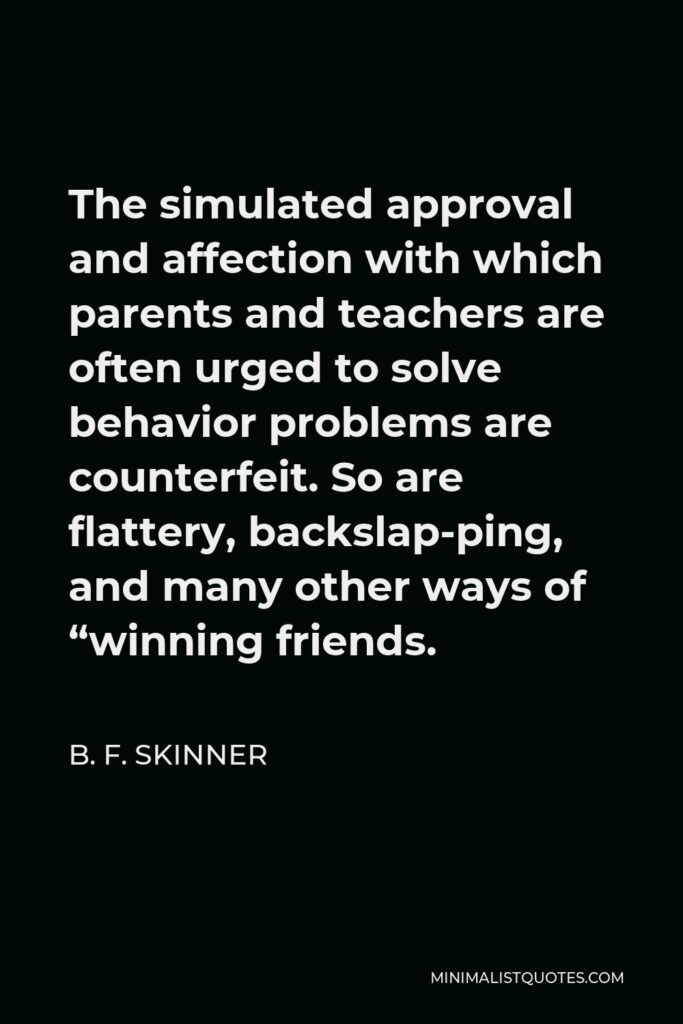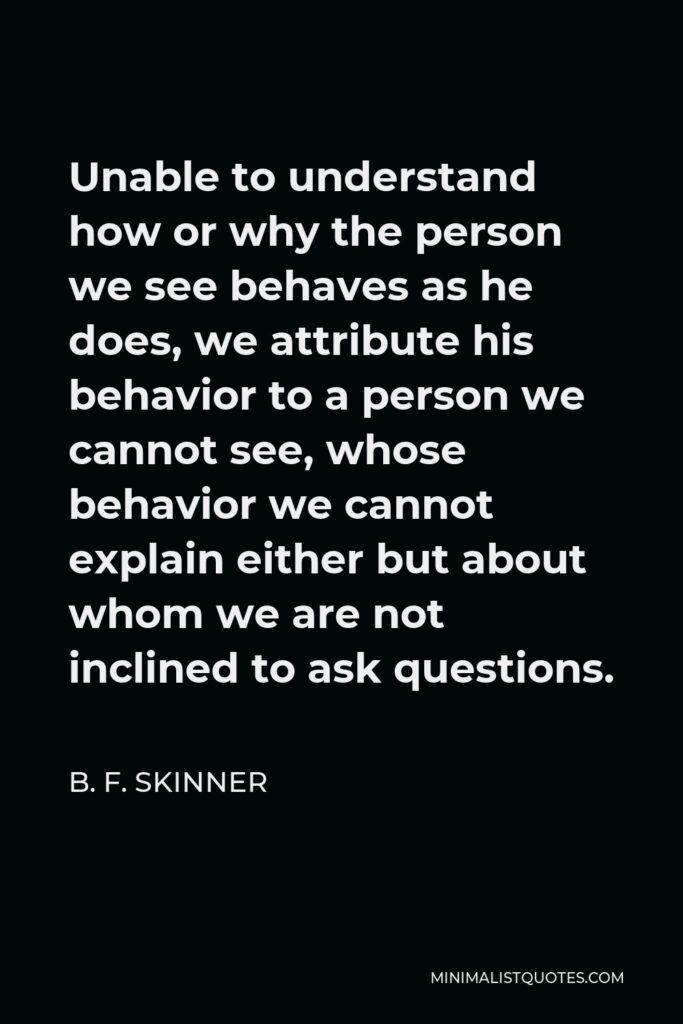A person’s genetic endowment, a product of the evolution of the species, is said to explain part of the workings of his mind and his personal history the rest.
B. F. SKINNERGoing out of style isn’t a natural process, but a manipulated change which destroys the beauty of last year’s dress in order to make it worthless.
More B. F. Skinner Quotes
-







-







A child who has been severely punished for sex play is not necessarily less inclined to continue; and a man who has been imprisoned for violent assault is not necessarily less inclined toward violence.
B. F. SKINNER -







Let men be happy, informed, skillful, well behaved, and productive.
B. F. SKINNER -







Indeed one of the ultimate advantages of an education is simply coming to the end of it.
B. F. SKINNER -







Something doing every minute’ may be a gesture of despair-or the height of a battle against boredom.
B. F. SKINNER -







When we say that a man controls himself, we must specify who is controlling whom.
B. F. SKINNER -







Society already possesses the psychological techniques needed to obtain universal observance of a code – a code which would guarantee the success of a community or state. The difficulty is that these techniques are in the hands of the wrong people-or, rather, there aren’t any right people.
B. F. SKINNER -







The simulated approval and affection with which parents and teachers are often urged to solve behavior problems are counterfeit. So are flattery, backslap-ping, and many other ways of “winning friends.
B. F. SKINNER -







Men build society and society builds men.
B. F. SKINNER -







I will be dead in a few months. But it hasn’t given me the slightest anxiety or worry. I always knew I was going to die.
B. F. SKINNER -







What is love except another name for the use of positive reinforcement? Or vice versa.
B. F. SKINNER -







…not everyone is willing to defend a position of ‘not knowing.’ There is no virtue in ignorance for its own sake.
B. F. SKINNER -







Unable to understand how or why the person we see behaves as he does, we attribute his behavior to a person we cannot see, whose behavior we cannot explain either but about whom we are not inclined to ask questions.
B. F. SKINNER -







Twenty-five hundred years ago it might have been said that man understood himself as well as any other part of the world. Today he is the thing he understands least.
B. F. SKINNER -







A first principle not formally recognized by scientific methodologists: when you run into something interesting, drop everything else and study it.
B. F. SKINNER -







When we say that a man controls himself, we must specify who is controlling whom.
B. F. SKINNER








